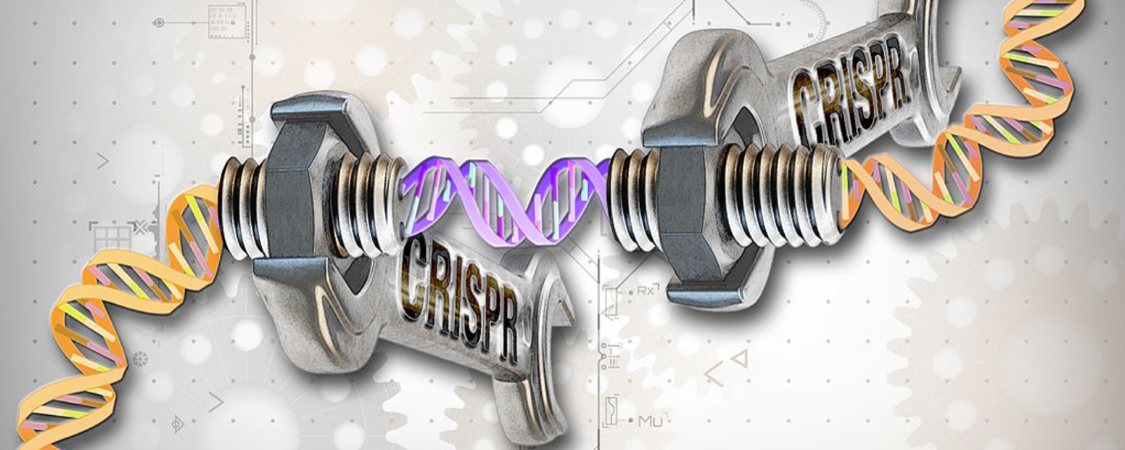By Bettina M. Lengsfeld
In the beginning of 2016, the United States Patent and Trademark Office (USPTO) began an interference proceeding to investigate the validity of patents and patent applications based on the CRISPR/Cas9 gene editing (CRISPR) technology. Dr. Feng Zhang along with the Broad Institute, Harvard University and MIT filed and were granted 13 patents based CRISPR technology in eukaryotic organisms. While, Dr. Jennifer Doudna from the University of California, Berkeley, along with Dr. Emmanuelle Charpentier from the University of Vienna, filed a patent application based on CRISPR technology in vitro and in prokaryotic organisms. Dr. Doudna began the process and claims priority from May of 2012 while Dr. Zhang began his patent process in December 2012. The resulting proceeding in front of the Patent Trial and Appeal Board (PTAB) will determine if the Dr. Zhang’s patents will be partially invalidated and if Dr. Doudna’s patent application will be prior art to Dr. Zhang’s research.
The CRISPR/Cas9 pathway is endogenous to prokaryotic cells to protect the cell from viral infection by editing the viral DNA itself. CRISPR/Cas9 gene editing technology utilizes Cas9, a DNA endonuclease, and CRISPR and short RNA, which is used to direct Cas9 to a DNA target. Although in its infancy, CRISPR technology has the potential to be utilized in several diverse fields of research and commercialization.
In March 2013, the America Invents Act changed the requirement for patent applications from the first-to-invent to the first-to-file protocol. Because both Dr. Zhang’s and Dr. Doudna’s patent applications claim priority prior to March 2013, the PTAB will need to determine which group invented the technology first. Although, Dr. Zhang’s patent application was after Dr. Doudna’s application, Dr. Zhang’s group was able to request the USPTO to fast-track the application which resulted in U.S. Patent 8,697,359. The interference proceeding is focused on U.S. Patents 8,697,359; 8,771,945; 8,795,965; 8,865,406; 8,871,445; 8,889,356; 8,895,308; 8,906,616; 8,932,814; 8,945,839; 8,993,233; and 8,999,641 from Dr. Zhang’s group and patent application 13/842,859 from Dr. Doudna’s group.
On December 6, 2016, oral arguments were heard from both parties in front of the PTAB. Dr. Doudna’s party has the burden of proof and must prove by the preponderance of the evidence that Dr. Zhang’s patents are invalid. The University of California, Berkeley (UCB) argued that Dr. Doudna’s research was prior art to Dr. Zhang’s research and that his work was obvious. Non-obviousness is a requirement for technology to be patentable. Even though Dr. Doudna’s research was in vitro and in prokaryotic cells, UCB argues that moving the CRISPR system into eukaryotic cells was obvious and was actually accomplished by several groups shortly after the initial patent application. The Broad Institute (Broad), representing Dr. Zhang’s patents, argued that it is not obvious to transfer an enzymatic system from prokaryotic cells to eukaryotic cells. Dr. Zhang’s technology utilized a Cas9 protein from a different organism because it was smaller and more likely to fit within the packaging system to be transferred into the eukaryotic cell.
The issue of obviousness will be a decision for the PTAB panel of judges. A standard for patent determination is if the technology was obvious to a person of reasonable skill in the field. The judges will have to decide if a person in field could have reasonably predicted that the transferring the CRISPR/Cas9 system into eukaryotic cells would have been successful. Even if the judges decide that it was obvious, in favor of the USB, the Broad would still potentially have claim to claims within the patents that are not obvious and where Dr. Doudna’s research is not prior art.
Once the PTAB makes a decision about the validity of the Broad’s patents, either party that is dissatisfied with the decision may appeal to the PTAB. Additionally, either party, if dissatisfied with the PTAB’s decision at appeal, may appeal to the United Stated Court of Appeals for the Federal Circuit.
CRISPR-based companies have been emerging since the potential of the technology has been recognized. Editas Medicine has exclusively licensed intellectual property related to research and inventions from the Broad Institute, Harvard University, MIT, Wageningen University, The University of Iowa, and the University of Tokyo. While, CRISPR Therapeutics, Intellia Therapeutic, Caribou Biosciences and ERS Genomics have entered into a global cross-consent agreement with the University of California, Berkeley, Dr. Emmanuelle Charpentier, and the University of Vienna.
Student Bio: Bettina is a Staff Member on the Journal of High Technology Law. She is currently a 2L at Suffolk University Law School and President of the Intellectual Property Law Student Association. Bettina received her doctorate in Microbiology from the University of Texas at Austin and her Bachelor of Science in Molecular Biology from the University of California, San Diego.
Disclaimer: The views expressed in this blog are the views of the author alone and do not represent the views of JHTL or Suffolk University Law School.

